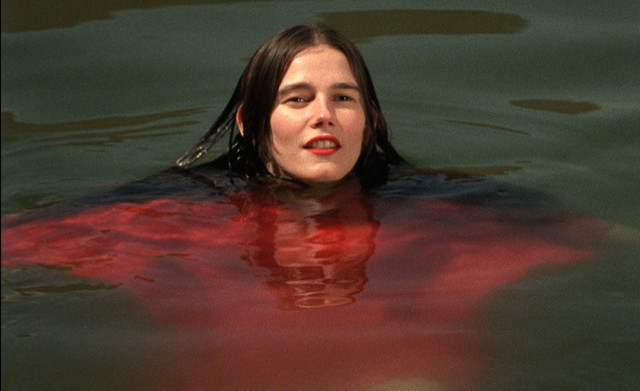
Any film festival that characterizes itself by the unseasoned stature of its participants must inevitably concede to the nature of nascent creativity. Meaning qualitative notions of good and bad, worthy and unworthy, will often go hand in hand, perhaps encouraging a certain forgiveness or, in turn, magnification of individual attributes which may in another setting garner a more thorough critical reading. This condition of risk-reward is implicit in the very name of the annual New Directors/New Films series, now in its fourth decade and returning this year to the Film Society of Lincoln Center and MoMA from March 18-29th. Boasting a lineup as strong as any they’ve assembled in recent memory, and with few examples of curatorial capitulation in the name of artistic promise, the festival’s 44th edition offers a satisfying blend of features and shorts, homegrown and foreign talent, fiction and nonfiction fare, as well as a few highlights which brashly do away with such categorical distinctions.
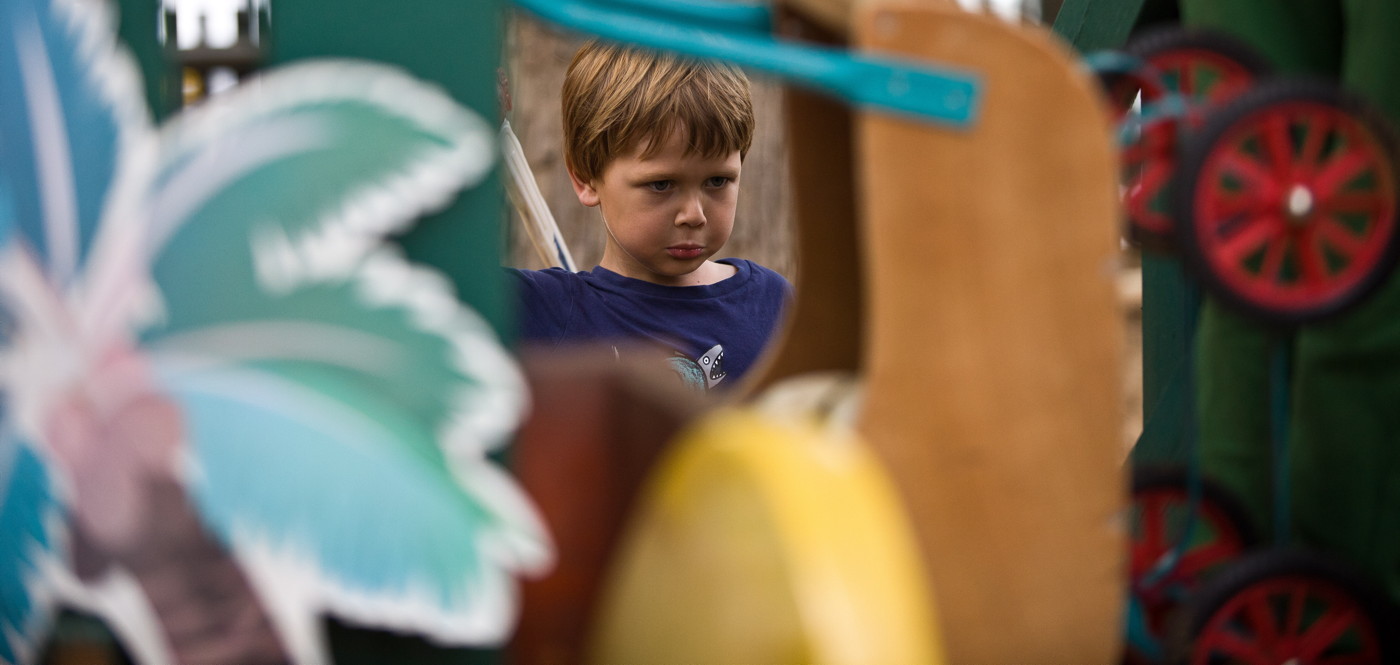
Still, despite the general consistency of the program, gradations in caliber are apparent. The Kindergarten Teacher, at once the most ambitious and accomplished film in the series, comes from Israel’s Nadav Lapid, a second-time director whose first film, Policeman (2011), remains one of the most complex and confident debuts of the decade. At first blush a less elaborate, and certainly less searing, work than its predecessor, Lapid’s latest in fact integrates a greater index of themes and ideas into its highly self-reflexive framework. The film focuses on the unassumingly quaint relationship between a six year-old boy named Yoav (Avi Shnaidman) and his teacher, Nira (Sarit Larry), who finds in her pupil evidence of a budding genius when she discovers the child’s incongruously wise works of handwritten poetry. Captivated by this unimaginably cerebral skill and enchanted by his insight, Nira begins to slowly take steps toward preserving Yoav’s talent. The dramatic crux of the film lies in the lengths Nira will go to protect the boy’s abilities even at the expense of his physical well being. It’s Lapid’s parallel consideration of the religious and moral indoctrination of Israel’s contemporary middle class, however, that lends the narrative greater dimensionality. More than just staging the consequences of these concerns on an appropriately diminutive scale, Lapid orchestrates conspicuous fissures from within the film’s otherwise airtight infrastructure, suggesting a nagging malady at the heart of his subjects’ social caste as readily as it seems to playfully comment on the austerity of his prior film.
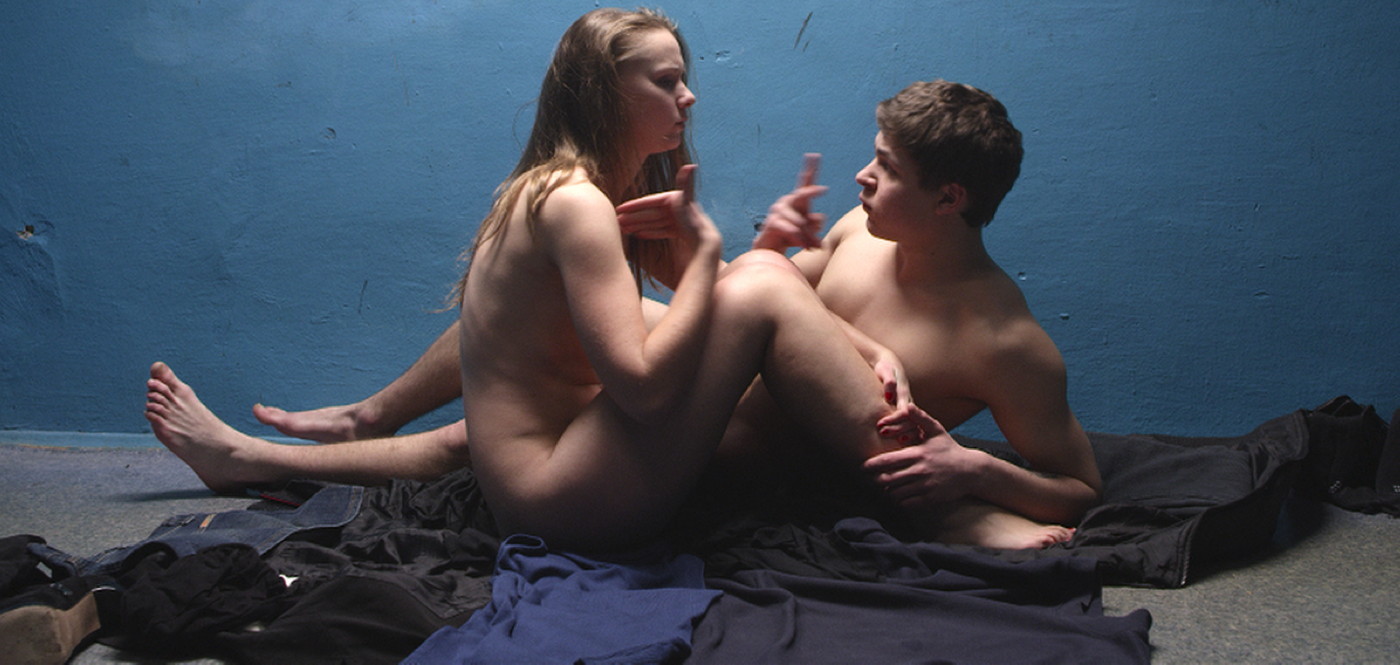
A similar yet more severe symptom of this brand of formalism can be found in a number of other ND/NF titles. The Tribe, the first feature from Ukrainian director Myroslav Slaboshpytskiy, is both the most memorable and potentially problematic example of such stylistic determinism. Concerning a group of deaf-mute teens who take to increasingly savage acts of criminality as a form of inbred cultural conditioning, Slaboshpytskiy’s debut, already highly touted as the first film told entirely in sign language, is an undeniably impressive logistical accomplishment. What it has to say, however, about the noxious state of post-Soviet society that other, similarly punishing films by Michael Haneke or Ulrich Seidl have about their individual milieus is harder to parse.
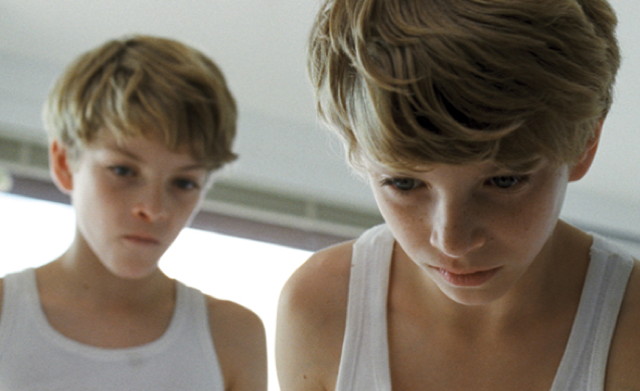
A convenient comparison could be made with Seidl’s wife and collaborator Veronika Franz’s ND/NF entry Goodnight Mommy. Co-directed with Severin Fiala, this nightmarish tale of twin boys who attempt to violently unveil the identity of a woman whose facial reconstruction they believe to be quite literally masking the disappearance of their mother is aided in its allegory by not only its genre elements but also its heightened sense of realism. The same might be said for Parabellum, the debut from Austrian filmmaker Lukas Valenta Rinner, whose highly political depiction of a group of radicals who retreat to a remote training outpost in anticipation of the apocalypse is helped considerably in its own metaphorical mission by the director’s methodical sense of cinematic space and time and his adherence to narrative ambiguity.
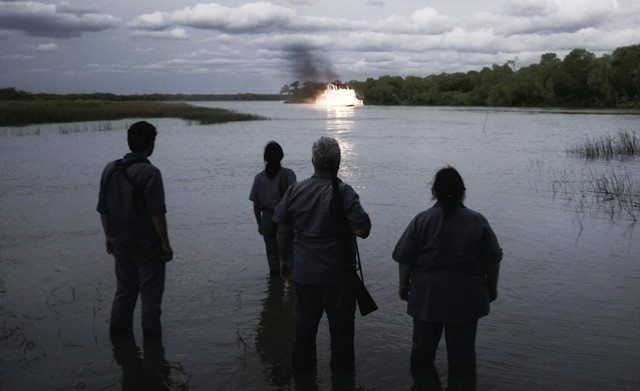
Contemporary films from East Asia often employ allegorical conceits of their own for reasons of censorship and ongoing conditions of artistic suppression. And indeed, three ND/NF titles from three disparate Eastern locales each couch their message in parabolic scenarios. The most damning of these is Ow, by Japanese filmmaker Yohei Suzuki, who exploits elements of science fiction to comment upon the numbing traits of modern technology and the communicative barriers it paradoxically encourages. Set largely within the confines of one unambitious household, and staged at times like a carefully choreographed chamber play, the film introduces a succession of initially unrelated characters who one by one fall prey to the hypnotic allure of a mysterious glowing orb. Frozen under the spell of this unidentified floating sphere, the family members remain helpless as the police and media attempt to uncover the origin of this phenomenon.
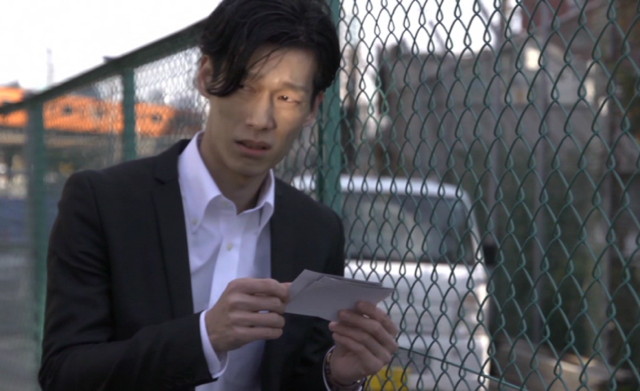
It may just be its proximity in the program to the Mongolian film K, a strange and intriguing reanimation of Franz Kafka’s unfinished novel The Castle, but there’s a vaguely Kafka-esque air to Ow and its take on stunted social advancement. Produced by the great Chinese filmmaker Jia Zhang-ke and directed by the team of Darhad Erdenibulag and Emyr ap Richard, K follows an anonymous land surveyor’s attempts to reach an allusive castle run by the unseen dictator Klamm, whose troupe of mistresses and henchmen send our hero on a parallel journey toward a more existential reckoning. As far as tales of economic and social stratification go, both Ow and K are more successful than the Bong Joon-ho produced Haemoo, a high seas Korean immigration thriller directed by Shim Sung-bo that forgoes nuanced political consideration in favor of brute force action-adventure.
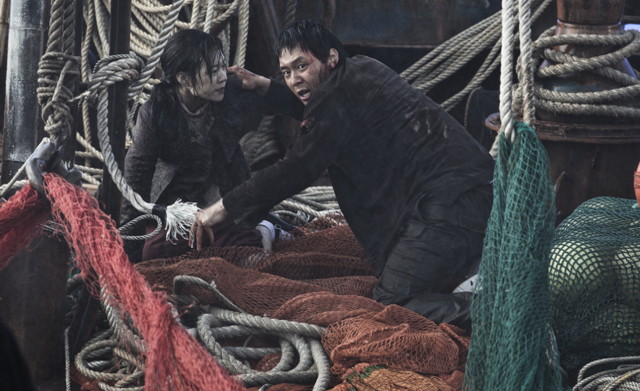
Elsewhere a number of acclaimed titles from recent festivals make reappearances in the lineup. A trio of last year’s Locarno winners make for a selection of films of varying interest: Simone Rapisarda Casanova’s Best Emerging Director-winner The Creation of Meaning is a chimerical tale of an aging shepherd whose past lives re-materialize in the shadows and fog of the Tuscan Alps; Los Hongos, by Oscar Ruiz Navia, winner of the Filmmakers of the Present’s Special Prize, follows two young graffiti artists who come of age against the backdrop of the Arab Spring; while Yury Bykov’s The Fool is an unfortunately conventional and at times laughably manipulative bureaucratic melodrama, carefully calibrated for histrionic political discourse and capital-E expressive performances (the film won four awards at Locarno including Best Actor).
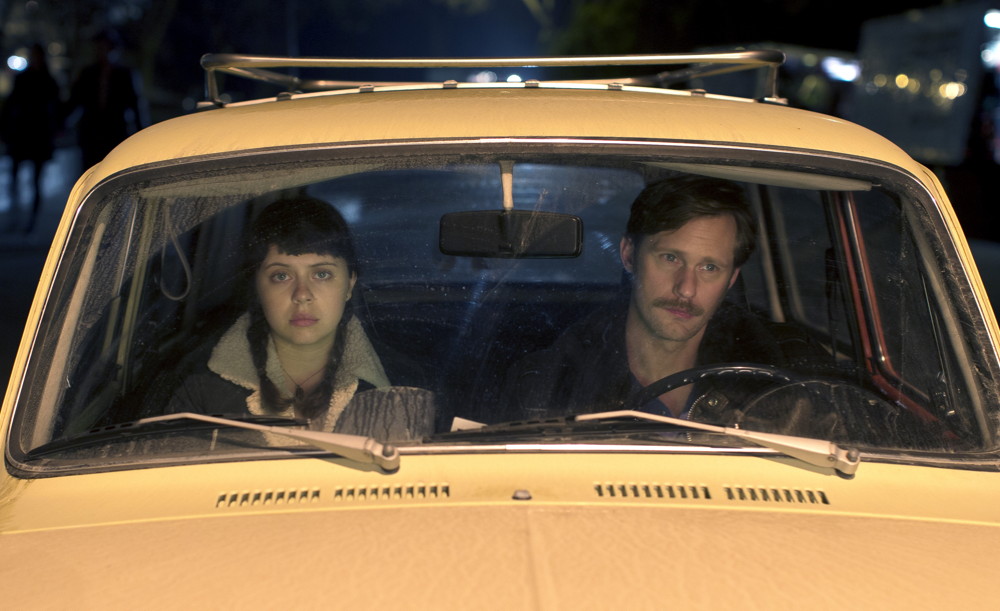
A handful of recent Park City showings fair better. From Sundance, in addition to the highly regarded opening and closing night selections Diary of a Teenage Girl and Entertainment, there’s Stevan Riley’s Listen to Me Marlon, a seemingly familiar archival documentary about Marlon Brando which takes on increasingly intriguing shades before landing somewhere closer to Mark Rappaport’s mid-nineties essay films; Western, a metaphysical murder mystery from the Ross brothers which parlays its documentary roots and genre associations into a meditation on U.S.-Mexico border relations; and Christmas, Again, a modest but moving debut from Charles Poekel, who wisely enlists a contemporary indie all-star team of actor Kentucker Audley, editor Robert Greene, and cinematographer Sean Price Williams to realize an intimate evocation of big city melancholy and camaraderie. Slamdance, meanwhile, brings Britni West’s debut Tired Moonlight, a film, like Western, which nicely exemplifies the flowering American docu-fiction movement; featuring a cast of both amateurs and professionals engaging in the routine pleasures and particulars of modern day Montana, it’s a work of small moments and natural wonders.
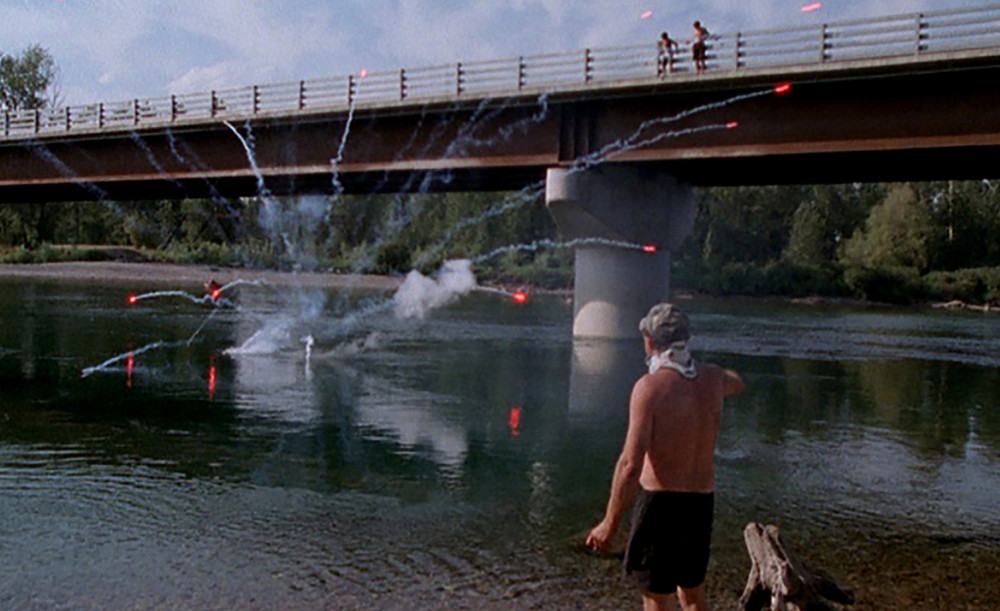
Of the remaining titles, two unclassifiable films stand as particularly exciting examples of fresh filmmaking talent. Fort Buchanan, a film steeped in the traditions of the European arthouse, was made by an American, Benjamin Crotty, who lives in Paris and whose aesthetic sensibilities suggest a man who’s located the queer poetry in Eric Rohmer’s “Comedies and Proverbs” and rewritten the grammar with the help of a post-modern cinephilic thesaurus. Set at the titular military outpost where a group of lonely army wives and romantic companions await the return of their significant others from the frontline, the film follows Roger (played by Andy Gillet, recognizable as the lead of Rohmer’s The Romance of Astrea and Celadon) and his adopted daughter Roxy as they navigate a calendar year apart from their husband and father. Mixing naturalistic imagery, incongruous music cues, deadpan sexual humor, and psychedelic interludes, Crotty manages in only sixty minutes to construct an entire parallel reality, tangibly atmospheric and highly surreal.
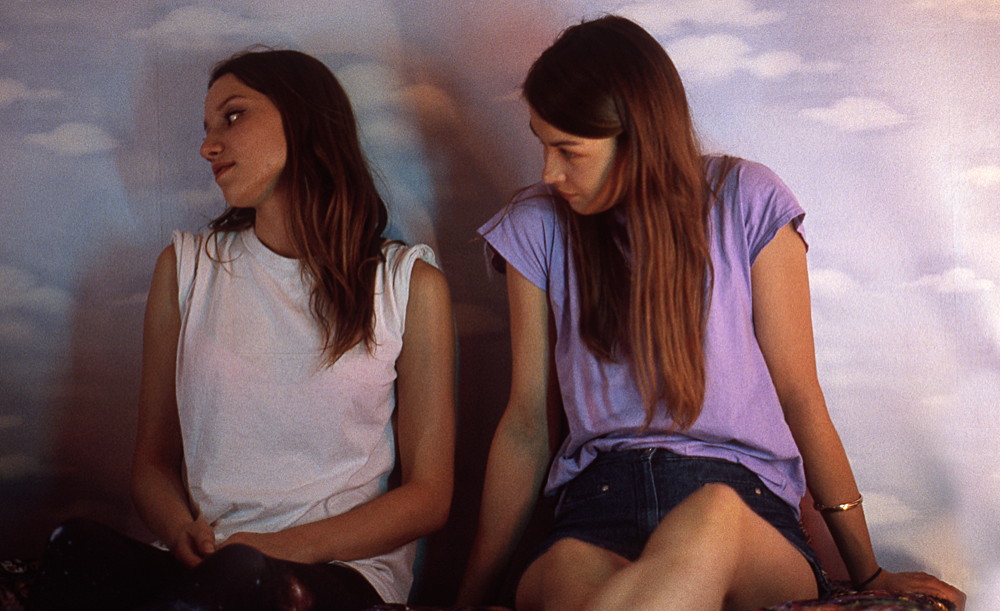
Equally disorienting and invigorating is Mercuriales, by French director Virgil Vernier who works a similarly hallucinatory magic with his own lineage as Crotty’s does with his adopted ancestry. Concerning two artistically and romantically unsatisfied girls working dead-end receptionist jobs, Vernier’s first feature follows an ever-widening path as these friends find themselves growing perpetually closer even as society seems to be collapsing at their feet. (Anewcareer) With its pair of freely sexual young female protagonists, dream-like narrative progression, radical conceptions of identity, and city/country dialectic, the film can’t help but recall Jacques Rivette’s Celine and Julie Go Boating (1974). It’s to the credit of Mercuriales and the best of this year’s New Director/New Films selections, however, that these works can not only provoke such lofty comparisons, but also in bearing the weight of their forebears suggest that something of similar magnitude may be in the future of any number of these filmmakers.



